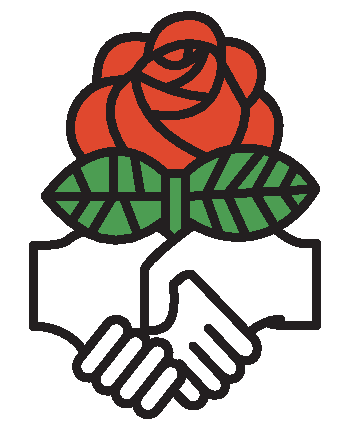The International Financial Crisis and the Impact on Women
Lisbon, Portugal, 01 and 02 February 2013
Resolution
The international financial crisis, caused by neoliberal globalisation that is determining public policy, is being paid for by the poorest, and by women in particular. Many governments’ response to the crisis has been to push the neoliberal agenda further by presenting austerity measures and adopting policies that curtail public spending for social welfare institutions as the only solution to recovery. Women are disproportionately affected by both the crisis and this solution: they’re experiencing increased unemployment, poverty and hunger, even deportation and domestic violence, while gender equality is rolled back on the quiet.
Female unemployment has increased more than male unemployment worldwide. The impact for women is greater as their jobs are more likely to be low-paid, precarious and without social protection. Women comprise 60 to 80% of informal sectors of the economy in Asian and eastern and southern African countries for example, where manufacturing of garments, cut flowers or electronics has been heavily hit due to reduced demand. Additionally, women in Southern Europe are particularly hit by unprecedented rates of unemployment. Migrant women, may be expelled, causing the loss of remittances to their families and country of origin. There have also been huge public sector job cuts, such as in the UK where there are to be 700,000 jobs cut between 2011 and 2017, which affect women most as they make up 60% of the public sector workforce worldwide. This also impacts on the incomes of immigrant women working in Western countries such as in the area of building maintenance services. Thus they lose their jobs due to closures of companies, firms and other offices.
Women’s financial independence is removed with unemployment, for example in Ghana, where 44% of women have no formal education, women have become more financial dependent on men due to losing their jobs as a result of the crisis. Studies show this can lead to increased intimate partner violence against women and girls. Unemployment also impacts access to healthcare and nutrition, as in African countries such as Kenya where the price of maize suddenly doubled to equal the average weekly wage in 2008. To cope with price spikes women first reduce food diversity and quality, then quantity and safety of diets, usually being the first to go without. In India, for example, women are expected to eat only remaining food, which can lead to malnutrition. Similarly unemployment leads to health problems as women put their own lives at risk by forgoing essential medicines. Fathers are absent in more than a third of families. Many of us women care for our families on our own and therefore suffer in a particularly dramatic way a shortage of jobs, lack of social security, the deficiency in public services, the lack of access to financing, and to obtain adequate housing.
In countries with a high rate of poverty, the majority of those engaged in the informal economy are women. This is because it is the only option that they have to support their families. Workers in the informal sector suffer insecurity, the lack of basic services, the hostility of the environment, police corruption, the lack of social security and the lack of care centres to look after their children during working hours. In addition it is more difficult for women than men to obtain financial resources; their businesses are even more precarious and have less potential for development, without social benefits and subject to swings in the economy (sales), which in turn reduces their income and this leads to increase levels of poverty.
High unemployment and food prices have aggravated existing violence and sparked new violence against women in many countries. The crisis sparked also revolution, trafficking of all kinds and conflicts around the world where sexual violence against women is being used as a weapon of war. For example, during the Arab spring government forces and regime supporters raped women activists in Libya, Eygpt, Yemen. In the Syrian civil war where women and girls are escaping to Turkey, Jordan and Lebanon after being raped by government forces; and in Mali, where women and girls are suffering sexual violence and rape from rebels occupying the north.
Of the 15% countries with social protection mechanisms, cuts in welfare provisions are hitting poor families and predominantly female single parents most, for example in Australia, where single parent benefits were cut in 2013. Reduced public social expenditure on basic services has increased the unpaid care-work of women both in developed countries and developing countries. For example in the Pacific Islands, women are taking on work that was formerly the states responsibility, spending more hours working in subsistence environments, with less support from Pacific NGOs, following cuts as New Zealand shifts its development budget from poverty reduction to economic stability.
In this climate, public policy on gender equality is seen as costly and unnecessary, despite its role in preventing greater social exclusion and inequalities such as poverty and unemployment, which are more expensive in the long term. In Central Asia, Latin America and the Caribbean, Africa, the Middle East and in some countries in Europe, there are increasing attempts to eliminate the achievements of decades of women’s work for their rights, particularly privacy and health, to be recognized as inalienable parts of universal human rights. For women such as migrant workers, single mothers, low-educated women, illiterate women, indigenous women, women living in rural areas and lesbians and transsexual women, already threatened by multiple discriminations, their access to employment, support and education is likely to be further eroded as the popular drive towards traditional models, stereotypes and ‘order’ intensifies.
Therefore the Socialist International Women (SIW) calls on governments and member parties of the Socialist International and NGOs with similar values to SIW to:
push for a sound economic governance that is for the benefit of all people and that goes beyond the sole financial mechanisms;
introduce a global financial transaction tax in order to redistribute wealth, and use it for the reduction of inequalities between the rich and the poor, the developed and the developing; and use it for the reduction of social inequalities, including gender inequalities on the national level;
recognise a human rights-based approach in all policies, because the crisis must not be an excuse for ignoring human rights;
fight against the violation of human rights and progressive achievements, in particular women’s rights in the name of traditionalism;
prevent sexual violence and rape being used as a weapon of war, by ensuring that the laws of war are equally enforced for women and the perpetrators of these crimes are brought to justice;
recognise gender equality as a driving force for social and economic development: women are not passive subjects, but also actors in defining and implementing macroeconomic policies and in creating wealth;
implement as a matter of priority policies for better and more equal and equitable participation of women in decision-making centres;
not reduce aid given to developing and poor countries, and acknowledge that a current reduction will cost a lot more later;
encourage women’s access to land, water, income, energy and capital, and to financial resources as a whole and
ensure women’s access to equal paid work and salaries that ensure women’s economic independence now and in the future.
_______________

